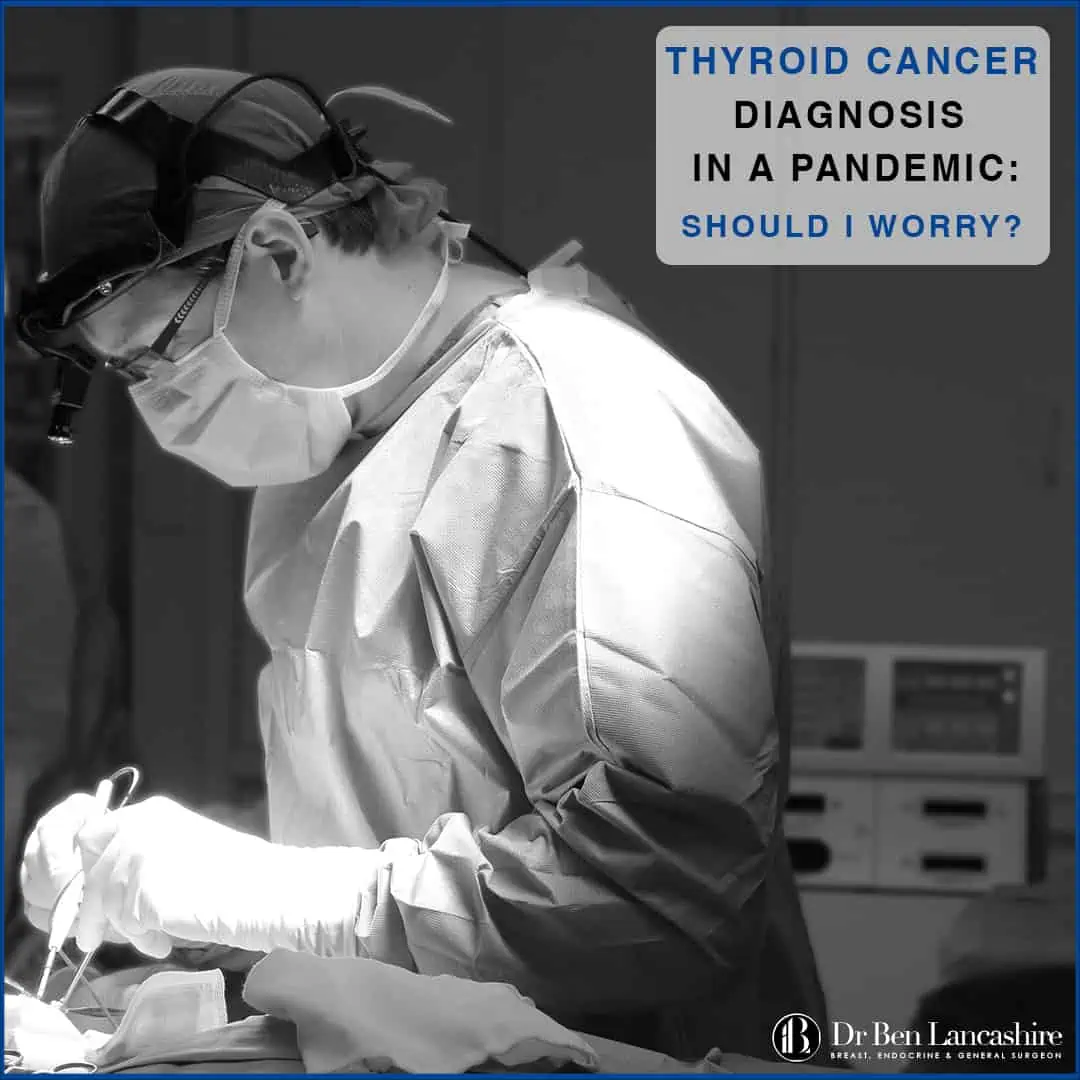I have had discussions with several concerned patients who have had their thyroid surgery delayed due to COVID-19. This may be due to a reduction in the surgical services in their health district, or because they have had a recent COVID-19 infection themselves, delaying their surgery from an anaesthetic safety point of view.
There are four main types of thyroid cancer:
🔹 Papillary (70-80%)
🔹 Follicular/Hürthle (10-15%)
🔹 Medullary (5%)
🔹 Anaplastic (2%)
The prognosis for the most common types of thyroid cancer (papillary and follicular) is generally excellent. Medullary thyroid cancer is often associated with genetic endocrine disorders, and it tends to spread earlier than papillary cancers. Anaplastic thyroid cancer is extremely rare and carries a very poor prognosis despite surgery.
Most thyroid cancers are treated with a hemithyroidectomy (partial removal of the thyroid) or total thyroidectomy (complete removal of the thyroid gland). Some thyroid cancers require additional neck lymph node surgery and/or treatment with radioiodine.
For low-risk thyroid cancer, an ‘active surveillance’ approach is being taken in a selective group of patients, mostly being small, confined to the thyroid without any lymph node involvement. This involves regular examinations and neck ultrasound. It is important to realise that this decision needs made by an experienced thyroid surgeon within a multidisciplinary team setting.
The COVID-19 pandemic has seen delayed non-urgent elective surgery, which has impacted many patients with thyroid cancer. A recently published study in the ANZ Journal of Surgery(1) found that 90% of thyroid cancer clinicians reported delaying treatments for their patients during the pandemic, and that 88% of clinicians were worried by such delays. Importantly however, clinicians’ concerns usually related to patient anxiety about the delay rather than risk of disease progression in the meantime.
For the majority of patients, a minor delay in their surgery will not result in poorer outcomes from a cancer point of view.
Nickel, B., Miller, J. A., Cvejic, E., Gild, M. L., Cope, D., Dodd, R., McCaffery, K., & Glover, A. (2021). Thyroid cancer clinicians’ views and experiences of delayed treatment during the COVID-19 pandemic: An international cross-sectional survey. ANZ journal of surgery, 91(12), 2562–2564. https://doi.org/10.1111/ans.17128



